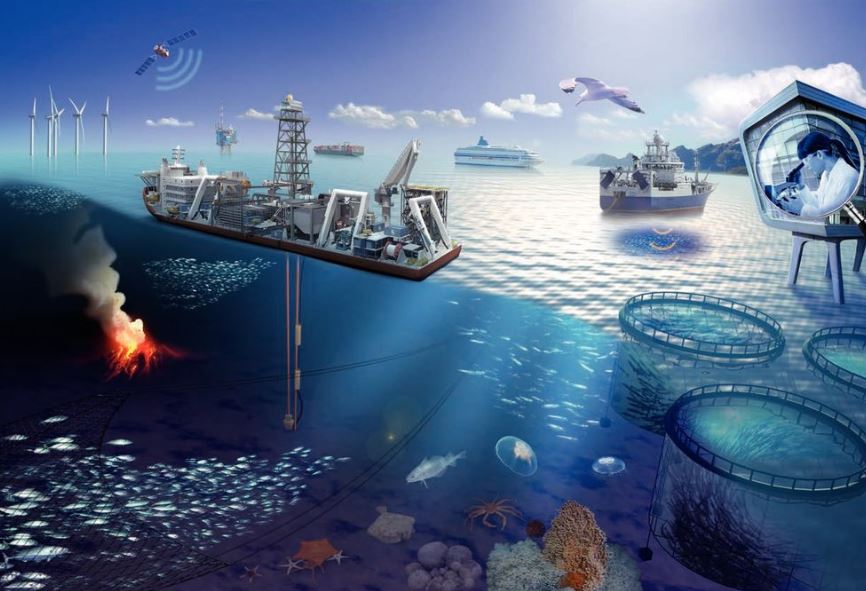Baltic States Switch Electricity Grid from Russia to EU
Context:
Estonia, Latvia, and Lithuania have officially disconnected from Russia’s power grid and integrated with the European grid via Poland.
More on News
- The transition was originally planned for 2025 but was expedited due to geopolitical tensions, particularly after Russia’s invasion of Ukraine.
- The move strengthens energy security and reduces dependence on Moscow.
Electricity Supply: Past and Future
- Past Supply from Russia: The Baltic states were connected to Russia’s power grid via BRELL, which supplied a significant portion (10%) of their electricity.
- New Source: Now, they will receive electricity through Poland via the LitPol Link, integrating with the EU electricity market.
Reasons for Baltic States Taking Such Action
- Security Concerns: Fear of Russian influence and energy weaponisation after the Ukraine war.
- Soviet-Era Legacy: The Baltic states were still part of Russia’s BRELL power ring (Belarus, Russia, Estonia, Latvia, Lithuania).
- EU Integration: Commitment to the European Network of Transmission System Operators (ENTSO-E).
- Energy Independence: Desire to diversify energy sources and reduce external reliance.
Implications
- For the Baltic States
-
- Energy Security: Greater stability and reduced risk of supply disruptions.
- Higher Costs: Short-term electricity prices may rise due to infrastructure adjustments.
- Grid Stability: Need for improved domestic power generation and storage capacity.
- For the European Union
-
- Strengthened Energy Bloc: A more integrated European energy market.
- Reduced Russian Leverage: Weakens Moscow’s economic and political influence over Eastern Europe.
- Infrastructure Development: Need for continued investment in interconnectors and renewable energy.
- For Russia
-
- Economic Loss: Decreased electricity export revenue from the Baltic region.
- Diminished Influence: Reduced ability to exert pressure through energy dependency.
- Alternative Markets: Russia may shift focus to exporting power to China and other partners.
Concerns Going Forward
- Energy Diplomacy between EU, Russia, and the Baltic States
-
- Retaliatory Actions: Potential Russian countermeasures such as supply cuts or cyber threats.
- Supply Chain Risks: Ensuring uninterrupted energy flow through Poland and other EU partners.
- Geopolitical Tensions: Further straining of EU-Russia relations, impacting broader energy negotiations.
- Faline Doctrine and Its Relevance
-
- Falline Doctrine refers to the principle that former Soviet states should detach from Russian control.
- The Baltic states’ disconnection aligns with this doctrine, reducing Kremlin influence in Eastern Europe.
- It signals a broader shift of ex-Soviet states towards EU integration and away from Russian dependency.
The Baltic states’ power grid shift is a strategic geopolitical move aimed at energy independence and security. It marks another step in reducing Russian dominance in Eastern Europe’s energy sector.
Energy Diplomacy: Russia, EU, and the Baltic States
Russia’s energy diplomacy has played a crucial role in shaping its geopolitical influence over Europe, particularly through its vast natural gas supplies. The country’s Siberian gas fields have been instrumental in meeting European energy demands, especially during harsh winters. The European Union (EU), while seeking energy diversification, has remained reliant on Russian gas despite strategic concerns raised by the United States since the 1980s.
Key Aspects of Russia-EU Energy Diplomacy:
- Dependence on Russian Gas: Many European nations, particularly Germany, have preferred Russian gas due to its cost-effectiveness and reliability, even in the face of US sanctions aimed at promoting alternatives such as Norwegian gas.
- Nord Stream Pipelines: To secure direct energy routes to Europe while eliminating Ukraine as a transit country, Russia advanced the Nord Stream pipeline agreements in the 2000s and 2010s. These projects bypassed Ukraine, ensuring a more direct supply route to Germany.
- Baltic States’ Resistance: Countries such as Lithuania, Latvia, and Estonia have actively opposed Russian energy dominance, seeking alternative suppliers and investing in liquefied natural gas (LNG) terminals to reduce dependence.
- Germany’s Reversal: In a major policy shift, Germany decided to cancel the Nord Stream 2 pipeline, signaling a break from long-standing reliance on Russian energy.
The Baltic states and Eastern European nations continue to push for greater energy independence through investments in renewable energy and LNG infrastructure, while the EU struggles to balance energy security with geopolitical tensions.
Faline Doctrine: Russia’s Strategic Energy Leverage
The Faline Doctrine, though not widely recognised as an official term, refers to Russia’s calculated use of energy resources as a foreign policy tool to exert influence over neighbouring countries and European allies. This doctrine manifests through:
Key Tenets of the Faline Doctrine:
- Weaponisation of Energy: Russia has historically used gas supplies as leverage, cutting off or reducing energy flows to exert political pressure, as seen in disputes with Ukraine (2006, 2009, 2014).
- Economic and Military Strengthening: Revenue from energy exports, particularly pipeline-based gas sales, has enabled Russia to modernise its military and sustain economic resilience despite Western sanctions.
- Selective Alliances: Russia strategically offers favourable gas deals to allied nations while imposing restrictive pricing or supply cuts on adversarial states.
- Pipeline Diplomacy: The construction of the Nord Stream and TurkStream pipelines exemplifies how Russia bypasses geopolitically problematic regions to secure energy dominance.
- EU’s Strategic Dilemma: While the EU seeks energy independence, Russia’s pricing strategies and contractual obligations make an immediate shift away from Russian gas economically challenging.
The Faline Doctrine underscores how energy is not merely a commercial resource but a strategic geopolitical weapon, allowing Russia to maintain leverage over Europe while shaping regional power dynamics. The doctrine has been particularly evident in the ongoing Ukraine conflict, where energy supply manipulation remains a central issue in the broader geopolitical struggle.


